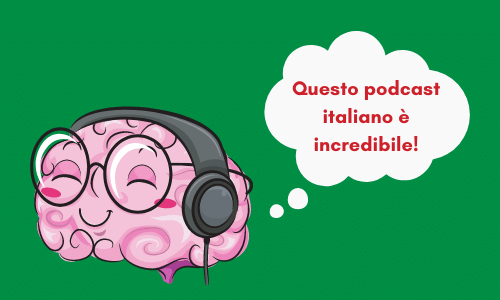How to learn Italian fast
By Anna Favaro | Fact checked by Alex RedfernStrategies and resources for learning Italian quickly
How to learn Italian fast? When you look this up on Google, you will come across a multitude of websites claiming that their particular course represents the quickest way to learn Italian, or a way to 'learn Italian in 3 months'.
Over the years I have met hundreds of language learners, and I can assure you that there is no single 'best' or quickest way to learn Italian. Everyone is different, and the best approach for you will be determined by factors such as your goals, skill level, budget, and how much time you have.
However, certain learning strategies are proven to be more effective than others.
This guide is based on my own experience as a language tutor in helping language students learn to speak Italian quickly, along with research into the methods used by polyglots (those who speak multiple languages fluently).
Polyglots are commonly considered to be superhuman. But they will be the first to admit that they do not have any superhuman powers when it comes to learning languages. Rather, their success with languages is largely down to effective strategies for learning.
I will outline these strategies and provide you with some practical resources, both for those that are free and those that can be paid for. With these strategies and resources, I will show you how to learn Italian fast.
If you are a beginner or have a basic level of Italian (A1/A2), you will benefit greatly from reading this guide. If you are at the intermediate level, however, you should instead consult this guide, which provides recommendations based on your level and your language learning goals.
Conversational fluency & how to speak Italian faster
Unfortunately, I am not able to show you how to become like a native speaker of Italian in six months. Despite what many companies promise, genuinely mastering a language requires years of practice and dedicated effort.
But the fact is that you are able to gain conversational fluency in much less time.
Conversational fluency refers to the ability to speak with native speakers at a typical, conversational pace on a range of common subjects. This is necessary if your ultimate objective is to get to know the locals, understand their culture, and successfully integrate into their country. Unless attaining a native-like level of fluency and accuracy is critical to your job, you should instead work on developing your conversational skills.
You can achieve conversational fluency in Italian quickly, and this guide will help you do it.
How to build your vocabulary wisely
Learning Italian quickly, or any language in fact, can seem like an impossible task. You may be wondering how you will learn thousands of new words and phrases, not to mention idioms! Thankfully, there are tactics that can help you begin to speak Italian fast:
- Learn the most frequently used words and phrases. In Italian, as in all languages, a small number of words account for the vast majority of the spoken language. You will encounter them regularly while learning the language. Write down and study the frequently used words and phrases while disregarding those you will not hear (or use!) very often. Knowing which are the common words to focus on can be tricky, but up next is the solution...
- Utilise spaced repetition flashcards. On Langua, you can access a range of special flashcard packs containing the 5,000 most frequently used Italian words. The spaced repetition technique used is scientifically proven to help you learn the words as quickly as possible, helping you both understand and speak Italian faster.
- Learn Italian cognates. Fortunately, the Italian language includes thousands of words that are similar in English. For example, situazione in Italian is the equivalent of situation in English. Typically, only the ending of the word changes. Therefore, you only need to know how the ends change. Here is another good example: memorable > memorabile.
- Make a written record of new words and phrases in a notebook. Yes, it is an old-fashioned technique, but it really does work. Research shows that writing instead of typing greatly improves your ability to recall information. Researchers suspect this is because writing takes more time and requires more cognitive processing.
Follow these four simple steps and you will learn to speak Italian faster!
Develop strategies for sustaining momentum
Mastering a language, according to Ukrainian polyglot Alex Voloza, 'boils down to consistent practice multiplied by time'.
Consistent practice may seem easy initially. However, as we all know from experience, it becomes increasingly difficult to sustain over time. So, how do you maximise your chances of consistently practising over time?
By forming habits. Habits are important for behaviour change because they allow you to avoid relying solely on willpower or motivation.
Cues and rewards help people form habits. The cue initiates the behaviour. For studying Italian, the cue may be as simple as adding a reminder to your calendar to study at the same time every day. The reward ought to come from the thrill of knowing you are improving, as well as the enjoyment of practising. I am convinced you will find the materials I recommend below both useful and engaging.
If this is not enough for you, maybe promising yourself an external incentive such as a trip to Italy will work!
Another method to stay motivated is to tell other people that you are going to practise every day. We all want to keep our promises, so telling others can help you sustain momentum.

Activities and resources for learning Italian as fast as possible
As you browse the resources listed below and decide which ones to try, keep in mind that your choices should reflect what you hope to accomplish. If you are looking to learn Italian fast and want to be able to converse in Italian as soon as possible, focus your practice time on developing your speaking and listening skills. Speaking practice is also more efficient than writing, as writing a sentence takes longer than saying it.
Now I will show you some of the best resources to learn Italian fast and how to best use them:
Podcasts
Listening to an Italian podcast every few days can help you enhance your ability to comprehend Italian as spoken by native speakers. If you are short on time, consider listening while doing housework, working out at the gym or even while commuting.
There are many free podcasts available for learning Italian. If you are a complete beginner, look into Language Transfer. If you already know quite a bit of Italian and want to reach an advanced level, check out LanguaTalk Italian (created by me!).
To get the most out of podcasts, try repeating occasionally what the hosts say. This will help you remember words and enhance your pronunciation. Also, listen to podcasts with transcripts to learn any vocabulary you do not understand.

The news and streaming services
If you know some Italian, consider following world news in Italian rather than in English. News presenters tend to talk clearly, and you will probably be familiar with some of the news items, which will help you understand them. Options for Italian news include Euronews, RAI, and Ansa, to name but a few.
Other than the news, if you have access to a streaming service such as Netflix, Amazon or HBO, you can watch a variety of Italian-language television series. Some of the finest Italian TV programmes in recent years include Suburra, Non mentire, Viola come il mare - all of which are available on streaming services.
When you decide which show to watch, be sure to turn Italian subtitles on and avoid using English ones, otherwise you will more than likely wind up reading them instead of listening attentively to the Italian. Which obviously defeats the purpose!
Conversation Practice
There are three primary alternatives for learning how to speak Italian quickly: language exchanges, attending lessons, and now - practising with AI.
If you live in a large town or city and already know some Italian, look into language exchanges, which are groups of individuals who come together and take turns speaking different languages.
These events are a wonderful opportunity to meet new people and develop conversational fluency in a comfortable and safe environment; after all, everyone there is working on learning a language, so people are generally extremely helpful and encouraging, giving you the confidence to speak without fear of making errors.
The disadvantage is that exchanges can be inefficient ways to learn: you can spend time going to the meetup, and while there, you may spend half of your time assisting people in your native language. As a result, while they still provide important practice, they are not the quickest way to learn Italian if they are your main source of speaking practice.
The quickest way to learn Italian, therefore, is to attend one-on-one sessions suited to your specific needs and interests. The cost may be little more, but if you take your classes online, it is possible to find a teacher for as little as $15 per hour (about €14 or £12). A skilled teacher will have you speaking for at least 70% of the session time while making you feel comfortable and offering thoughtful feedback on your spoken errors.
If you want to learn Italian quickly, check out the online Italian tutors available on LanguaTalk. It differs from other platforms due to only accepting the top 5% of teaching applicants.

More recently, yet another option has emerged: using AI for speaking practice. Several platforms now offer this option, including Langua.
Langua allows you to practise speaking Italian by role-playing a large number of real-world situations. Alternatively, you can gain valuable speaking practice by engaging the AI in debates, or simply having an informal discussion on a topic of your choice.
The AI will ask you relevant questions to help you learn to express yourself while also providing corrections and explanations to help you develop. Learning to speak Italian with AI is perfect if you want to be able to practise without pressure, and with no prior notice required. You can try Langua here.
Avoiding common pitfalls when trying to learn Italian quickly
You're now familiar with some of the most effective strategies and resources for learning Italian quickly. However, to increase your chances of success, you should aim to avoid the following common mistakes:
- Being preoccupied with grammar. While learning the fundamentals is crucial, faultless grammar is not required to communicate effectively. If you find grammar exercises dull, keep in mind that whether you talk, read, or listen to Italian, you automatically pick up lots of grammar. Think about the grammar of your native language, for example. Do you use it naturally because you know all the rules? Or did you learn it instinctively and via practice?
- Avoiding speaking and making mistakes. If you want to be able to communicate at a conversational level, you need to begin speaking early on. Believe me - this is the fastest way to learn Italian. You may feel apprehensive at first, but you must become comfortable with making errors. In fact, the more mistakes you make, the faster you will learn and develop. One of my students once told me he had asked an Italian waiter "Ci sono preservativi in questo pasto?" (Are there condoms in this meal?). He had intended to ask “Are there preservatives in this meal?” (preservatives in Italian is conservanti; preservativi is Italian for condoms!) An amusing and embarrassing mistake, but through mistakes like this, he has now reached a very solid level in Italian.
- Spending too much time on language apps. Language study programmes like Duolingo can help beginners learn basic vocabulary and grammar. However, if your aim is to learn how to speak Italian fast, answering multiple choice questions on an app is not the quickest method to get there. The quickest way to learn Italian is through speaking and listening practice with others.
- Telling yourself you do not have sufficient time. The truth is, you just need 15 minutes per day to improve. Think about your regular commute to work or place of study; thanks to mobile technology, you can use this time to revise vocabulary, study a list of cognates or listen to podcasts in Italian. Do you watch much television? Watch Italian news or TV series and use a streaming service's Italian subtitles.
By avoiding the above common learning mistakes, I guarantee you - you will learn how to speak Italian faster!
You can learn Italian quickly, regardless of your budget
In this guide, I have included everything you need to know - regardless of your budget. If you are feeling motivated, put your newfound knowledge to work by taking steps today. Start developing daily learning habits. Make a note of the resources I suggested and give them a try.
To help you on your journey, I also advise you to create a study plan, perhaps something like the one given below:
Day 1: Listen to a podcast. Are you a complete beginner? Check out Language Transfer. At a very basic level? Try Notes in Italian. For basic or intermediate levels: Una Storia ItaliAnna (my podcast)
Day 2: Find an Italian teacher and schedule a trial session.
Day 3: Go over 100 of the most frequently used Italian words.
Day 4: Learn some of the rules governing cognates.
Day 5: Start watching an Italian series on Netflix, Amazon or HBO with Italian subtitles.
Day 6: Refine what you’ve learned so far by speaking with an AI Italian tutor.
Day 7: Attend a language exchange and really put into practise your new Italian conversational skills!
Buona fortuna! (Good Luck!)

About the author:
Anna Favaro is a bilingual Italian and English teacher and freelance translator at Ca' Foscari University in Venice. She holds a Master's degree in teaching Italian language and culture to foreigners (ITALS), a CEDILS certification, and specializes in Psycholinguistics and Neurolinguistics. With a passion for teaching since 2004, Anna is also a podcaster and YouTuber, hosting "Una Storia ItaliAnna," available on LanguaTalk and YouTube. She is also an author of Italian language practice books, which can be found on Amazon. If you are considering taking Italian lessons, you can view Anna's profile here.

